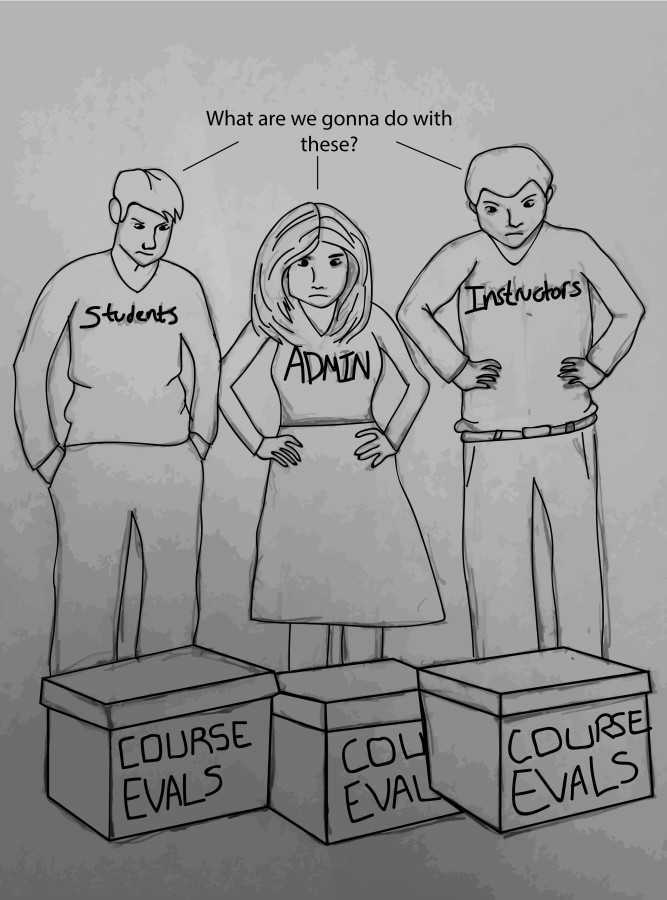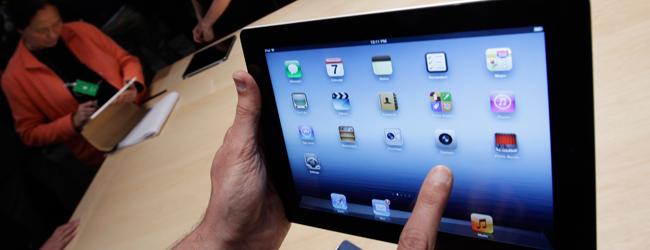Hailed as revolutionary after its release in April, the iPad may not be alone for long in the tablet computer industry.
In August Dell released the Streak, a hybrid smartphone-tablet with a 5-inch screen, and has hinted at larger tablet computers in the works. Research In Motion, meanwhile, unveiled the BlackBerry PlayBook, a 7-inch tablet, last week. Apple’s iPad has a 9.7-inch screen.
The Streak runs a version of Google’s Android operating system, while the PlayBook uses RIM’s new BlackBerry Tablet OS. A tablet running Windows has yet to be seen.
Nevertheless, this newest battle in the tech industry seems to mirror the Mac vs. PC debate that has been going on for years, as some students will choose one tablet over another solely based on brand.
“I like Apple products a lot,” said Ryan Nealon, a freshman in the College of Health Sciences. “I’ve got an iPod, I have a new Mac computer; I checked out the iPad a lot, and it’s amazing. You can tell that it’s the best because you hear about it a lot more than you hear about other products like it.”
Nealon owns an iPad, and said if given the option of an Android tablet, he would still choose the iPad over another device.
Sheikh Iqbal Ahamed, an associate professor in the department of mathematics, statistics and computer science, said Android tablets should still compete well with the iPad.
“They are a lot cheaper, lighter and have good multimedia support,” Ahamed said in an e-mail. “In addition, they have a good user base, as the total number of Android phone users is more than the number of iPhone users.”
Ahamed studies the use of mobile devices like smartphones and tablets, and is the director of Marquette’s Ubicomp Lab, where he conducts research with students on pervasive computing in all industries, including health care.
Ahamed said while the iPad excels with basic functions, Android tablets have more potential for expansion.
“Apple has excellent multimedia support and user interface; they truly put time in design,” Ahamed said. “The only limitation (for Android tablets) is that the number of iPad applications in the Apple Store is far more than the Android tablet applications. But since Android is open source, the number of applications will be increased exponentially.”
Open-source software can be edited by anyone, not just software companies, which could soon allow the Android app market to outstrip the Apple Store.
But some don’t see the point of tablet computers, citing difficulties using them for traditional office applications.
“It’s like a giant i(Pod) touch,” said Hari Prasad, a freshman in the College of Engineering. “In reality, it’s kind of useless. I don’t really like either. I think the iPhone’s better than both of them.”
But Nealon thinks that with a few more features, tablets could replace laptops altogether.
“Although my laptop is pretty easy to carry around, the iPad is light enough and small enough that you can just carry it in a bag or carry it in your hand,” he said. “So if there was an easy way to type a paper and print with it, then I would probably do it.”



Sarah Easdon • Oct 11, 2010 at 4:33 am
Get new apple iTunes review on http://www.applegadgetreview.com
Ryan Benjamen • Oct 10, 2010 at 12:42 am
This is actually interesting, couple with that it will be surprising to see how Apple is able to keep a hold on with Microsoft and Adobe who are supposed to be starting off with something.
Harry Dowling • Oct 8, 2010 at 5:13 pm
At the moment the opposite is the case. No significant competing device has come to market. The Wetab is a case in point. It was talked up in Germany as a Linux-based, feature-rich iPad killer and has been launched as a laughable, market-unready thing, heavier than announced and with a loud fan to cool its absurd Intel notebook processor. German customers are realising that they are just beta-testers who have paid through the nose for the privilege. And who is going to be interested in Meego after this debacle? Galaxy Tab is small but too big to be a phone. And its actually more expensive than the iPad. Big phone anyone? But haven’t phones become ever more compact?
So far no-one but Apple has grasped the necessity of software and hardware integration and the user experience. Apple and the iPad have no competition. And since there is no other company like Apple how can this change. Microsoft and other software companies have to develop their part of the solution and wait for an interested and suitable hardware company to climb in bed with them.
R.W. Wright • Oct 8, 2010 at 4:56 pm
To bloggers: Your post above makes no sense. It was directed at whom or what?
Who says anthing for “attentions?” And what on earth is “Apple envy?”
Feel free to contribute here in ways that others have a prayer of comprehending.
R.W. Wright • Oct 7, 2010 at 11:03 pm
The headline on this story reads, “iPad domination fading as competition grows.”
But nothing in the story comes close to supporting the claim that the iPad’s “domination (is) fading as competition grows.”
I think it is OK that the Marquette Tribune staff attempts stories such as this, but this story is minimally reported, really skimpy on facts and, thus, can hardly be the basis for the headline, “iPad domination fading as competition grows.”
The story says nothing of the sort.